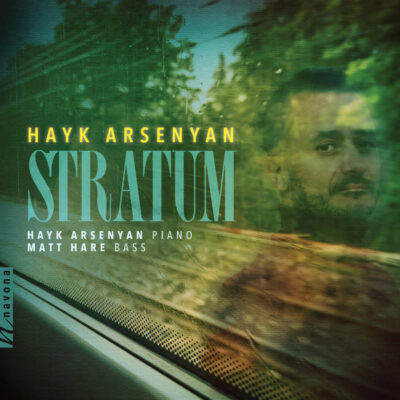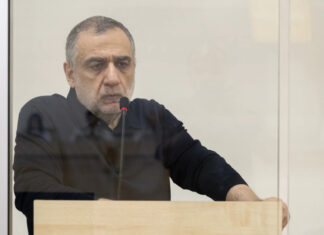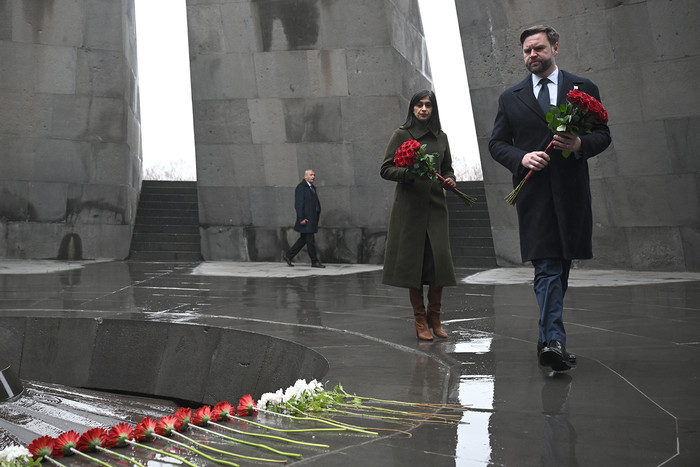WASHINGTON — On Monday, November 11, Freedom House, a non-governmental watchdog agency, issued a report, in which it concluded that the Azerbaijani regime engaged in ethnic cleansing against the Armenian population of Nagorno-Karabakh. The report was based on an international fact-finding mission composed of Freedom House and a coalition of six other partners.
The report, which builds on initial findings released in June, examined the situation for ethnic Armenians living in Nagorno-Karabakh between the end of the Second Nagorno-Karabakh War in 2020 and the Azerbaijani regime’s September 2023 military offensive, along with the aftermath of that offensive. The report found multiple cases of gross human rights violations, breaches of international humanitarian law, and violations of international criminal law by Azerbaijani authorities against ethnic Armenians in Nagorno-Karabakh, through extrajudicial killings, a monthslong blockade, forced displacement, and postdisplacement policies of cultural erasure and property destruction.
The documented evidence aligns with the definition of ethnic cleansing put forward by a UN commission of experts in the context of the former Yugoslavia. The fact-finding report also supports the conclusion that the acts documented in Nagorno-Karabakh constitute war crimes and crimes against humanity. The report’s release comes as Baku hosts the 29th Conference of the Parties (COP29), the annual UN forum on climate change.
“Baku’s military offensive and the use of blockade, starvation, and threats were brutal tactics meant to forcibly displace ethnic Armenians out of Nagorno-Karabakh,” said Andranik Shirinyan, Armenia country representative at Freedom House. “The Azerbaijani regime’s unchecked actions in Nagorno-Karabakh set a dangerous precedent of undemocratic regimes using force to end conflicts. The global community must step up its efforts to address the human rights abuses faced by the ethnic Armenians displaced from Nagorno-Karabakh and ensure that those responsible are held accountable.”
Key findings include:
- The Azerbaijani state’s actions constitute ethnic cleansing using forced displacement as a means. It acted upon a comprehensive, methodically implemented strategy to empty Nagorno-Karabakh of its ethnic Armenian population and historical and cultural presence. The documented evidence meets the criteria for ethnic cleansing as defined by a UN commission of experts’ report examining violations of international humanitarian law in the former Yugoslavia in the early 1990s.
- The September 2023 displacement of 100,000 ethnic Armenians was the culmination of an intensive, yearslong campaign. This campaign by the Azerbaijani state included widespread human rights violations in various forms against the ethnic Armenian population, using prolonged tactics of intimidation and a blockade. Such actions made it impossible for the ethnic Armenian population of Nagorno-Karabakh to live safely and in a dignified manner.
- Ethnic Armenian residents suffered multiple violations to their rights and freedoms. Fact finders documented violations to residents’ rights to life, health, food, freedom of movement, adequate living standards, liberty and personal integrity, education, and property. Cultural rights were also violated. Ethnic Armenians additionally suffered violations to their right to live without torture and ill treatment. Perpetrators willfully killed civilians—even in the presence of peacekeepers—and enjoyed absolute impunity. This heightened the insecurity and terror among the population prior to the mass displacement in September 2023.
- Violations in Nagorno-Karabakh remain ongoing in the form of erasure of Armenian cultural and historical presence. This includes the planned or completed destruction of Armenian cultural monuments, churches, cemeteries, and residential neighborhoods.
The report identifies a number of steps that democratic governments can take to address impunity. These recommendations include: - Urge accountability for acts of impunity. Support international efforts to prosecute crimes against humanity and war crimes committed against the population of Nagorno-Karabakh, including by making a state referral to the International Criminal Court (ICC). Implement targeted sanctions, such as travel bans and asset freezes, against Azerbaijani officials, military leaders, and individuals implicated in gross human rights violations and war crimes.
- Uphold the rights of displaced ethnic Armenians. Urge the Azerbaijani state to establish conditions for the safe and voluntary return of displaced Armenians to Nagorno-Karabakh, with robust safety guarantees and assurances of nondiscrimination. Support initiatives that safeguard the rights of forcibly displaced people and advocate for the implementation of strong legal protections and support services. Ensure that the voices of the affected population are heard and their rights upheld in all relevant international forums.
- Protect Armenian cultural heritage. Urge Azerbaijan to uphold international cultural-preservation standards and prevent further destruction or modification of Armenian cultural properties. Advocate for Azerbaijan’s cooperation with the UN Educational, Scientific, and Cultural Organization (UNESCO) and other relevant bodies to facilitate independent monitoring missions and promote international dialogue for the protection and restoration of these sites.
The fact-finding mission was composed of Freedom House, International Partnership for Human Rights (IPHR), Democracy Development Foundation (DDF), Helsinki Citizens’ Assembly–Vanadzor, Protection of Rights Without Borders NGO, Law Development and Protection Foundation, and Truth Hounds. The mission’s full report collected evidence from 330 witness interviews representing 71 of 107 Nagorno-Karabakh communities. It expands on initial findings released in June 2024 with additional documented evidence and analysis on the September 2023 military offensive, the ensuing displacement of ethnic Armenians from Nagorno-Karabakh, and the aftermath, including details on all of the routes used by residents to evacuate. It also expands on legal frameworks and provides a comprehensive set of recommendations.








